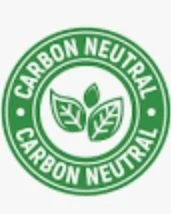Green is a murky word…
In recent months, I've been working on a project on sustainability and the consumer messaging that surrounds it. What's become abundantly clear is that the messaging is both confusing and overwhelming. There is also quite a bit of green-washing around sustainability and it’s not surprising people feel overwhelmed when trying to make a conscious purchase.
Many wine lovers equate sustainable wine with organic or biodynamic farming - in fact, it's everything else that has the biggest carbon footprint e.g. biodiversity, water use, energy resources, packaging and logistics. (Sustainable Wine Ltd, a UK-based association have some brilliant facts and insights on sustainability, so sign up to their newsletter if you’re interested in this topic).
Organic (and biodynamic) viticulture plays a vital role in promoting biodiversity and soil health, but it is easier in some climates than others. Unexpected weather events can threaten an entire crop - and livelihoods - and it would seem reasonable that a measured treatment, if and when required, to prevent such a catastrophe is more sustainable than the loss of a year's work and earnings. A rational approach and a holistic philosophy is much more sustainable for the longer term - some of the world's most sought-after producers (in Burgundy and Champagne for example) operate a "lutte raisonnée" or rational approach. I applaud those producers who will not compromise, but it's not an option for all.
All steps to be sustainable add up. Larger companies have the biggest impact and this can be a negative or a positive impact. They have a responsibility to lead the way on climate action and harness technology for water capture and re-use, green energy, lighter glass, less packaging and alternative packaging, as well as working to promote soil health and biodiversity through regenerative agriculture, cover crops, natural solutions for weed and pest control etc. As consumers, we must insist that they do. We do that by informing ourselves properly and making eco-conscious purchases.
Look out for lighter glass, carbon neutral symbols, less foil and plastic and become familiar with the symbols and what they mean. There are 100s of “certifications” and some are more worthwhile than others e.g. organic or bio (green leaf logo), Demeter (biodynamic), sustainable (a holistic, “reasoned” approach across the whole business), carbon neutral etc. See the image below for some of the global eco-symbols on wine.


